- Home
- J. F. Penn
Tree of Life Page 2
Tree of Life Read online
Page 2
“Morgan!” Jake called from across the pyre, beckoning her over through the billowing smoke. He stood with an old Rabbi, the man’s face creased with deep lines of wisdom etched by years of serving the Jewish community. But ash now smudged the lines, and exhaustion lay heavy on his shoulders.
Morgan walked around the edge of the pyre to join them. Jake’s muscular frame looked even larger next to the diminutive Rabbi, and his usual dark stubble was more pronounced given their early start. A faint corkscrew scar twisted away from the corner of his left eyebrow, which only served to emphasize his amber-brown eyes. They reflected a keen interest right now, one that made Morgan draw closer with curiosity. She knew that look. Jake had discovered something that might explain why they were here.
“Rabbi Cohen, this is Morgan Sierra. We work together at ARKANE.”
The Rabbi studied her more closely, his keen gaze assessing the planes of her angular face. Morgan brushed her dark curls back reflexively under his scrutiny. She had inherited her father’s Sephardic Jewish looks with the dark hair and tawny skin of Spanish heritage, although her eyes were unusual. A keen blue with a slash of violet in the right eye.
“Sierra?” the Rabbi said, his English slightly modulated with a Dutch accent. “We had a scholar here once with that name.”
Morgan smiled. “The name is not so unusual, but my father, Leon Sierra, was indeed a Kabbalist scholar. It’s possible he came to study here at your wonderful collection…” Her words trailed off and her smile faded as she realized that the books her father studied were most likely gone.
The Rabbi shook his head and sighed. “We know not the plans of God. Your father would have known that as well as I do.” He pointed to the back of the pyre nearest the wall of the synagogue complex. “I was just telling Jake about a part of our collection that I fear may be responsible for this destruction.”
He took a few steps forward until his shoes touched the edge of the smoldering pile, as if he would clamber over the ruins toward it. “We won’t know for sure what’s salvageable until the remains cool and we can dig underneath.”
He turned to face them again. Morgan saw a fire in his eyes reflected from the embers and kindled by the determination that drove the Jews of Amsterdam to survive when they were hounded from their homes so many generations ago.
“The fire crew said that the epicenter was at the very back of the library, where they also found the burned corpse of one of our congregation. Aaron Heertje, one of my students.” The Rabbi put a hand to his forehead and swayed a little.
Jake reached out to steady him, supporting his arm as the Rabbi continued. “The police informed us that the body of his wife, Rachel, was found at their home. They asked whether Aaron was depressed, whether perhaps this was a murder suicide, but I think it is far more, which is why I called Director Marietti. He and I have known each other for many years and he clearly trusts you in his stead.” He stood tall again and took a deep breath. “Come, it will be easier to show you.”
Rabbi Cohen shuffled toward the office complex on the opposite side of the courtyard, Morgan and Jake following close behind. The Rabbi pushed open the door and led them through to his office. It was a combination of ancient and modern with mahogany shelves laden with books, framed pictures from the history of the synagogue on the walls, and a wide desk inlaid with faded brown leather. A map of the world from the seventeenth century was mounted in an ornate frame marked with lines that snaked out from Portugal to the ends of the known world at the time.
The Rabbi opened a drawer and pulled out a slim laptop, its sleek modernity a sharp contrast to the timeworn surroundings.
He placed it on the desk and opened it up, then beckoned Morgan and Jake to gather closer. He tapped a few keys and pulled up a list of manuscripts and an index of the library. “We keep to the old traditions, but we also use technology to enhance our lives. The Lord gave us quick minds for a reason.”
He clicked through to an image, a fragment of a map illustrated with looped vines with spiked leaves and crimson flowers in front of a spreading tree on the edge of a river. The vibrant colors were unusual in a tradition that studied the stark letters of the Hebrew alphabet shaped into the words of the divine, and Jewish scrolls rarely featured such images. There were symbols and words on the fragment, but it was clearly just a portion of the whole.
“Ets Haim,” the Rabbi said, his voice wistful. “The Tree of Life from the book of Genesis, chapter three, after which the library is named.” He closed his eyes as he recited the verses in English. “‘The man has now become like one of us, knowing good and evil. He must not be allowed to reach out his hand and take also from the tree of life and eat, and live forever. So the Lord God banished him from the Garden of Eden to work the ground from which he had been taken. After he drove the man out, he placed on the east side of the Garden of Eden cherubim and a flaming sword flashing back and forth to guard the way to the tree of life.’”
As he spoke the words, Morgan bent closer to examine the image. The sharp edges of the thorns looked menacing as if the vines were alive and could slash apart and devour whatever approached.
This was no gentle Eden.
The Rabbi opened his eyes once more. “Few knew of this fragment, but it was kept at the back of the library where the fire started. I didn’t think Aaron knew of it, but perhaps he discovered its existence somehow.”
“So what exactly is it?” Jake asked.
The Rabbi scrolled across the image to focus on the tree by the river, only partially visible before the torn edge. “This is part of a map that reveals the true location of the Garden of Eden, a place forbidden to us and a knowledge handed down to a select few over generations. It was torn into four pieces when the Portuguese betrayed the Jews and allowed the Inquisition to tear the community apart. One piece came here, but the others are scattered, I know not where. Perhaps someone is trying to put them together again.”
Morgan looked over at Jake as he stood back to consider the Rabbi’s words. His brow furrowed as he studied the image, and his dark eyes were contemplative. Perhaps in the past, they both would have been doubtful that such a thing was possible. But such wonders filled the vaults below the ARKANE headquarters in Trafalgar Square in London, and she had seen things that dissolved her own doubts over time. If this truly was part of a map to the Garden of Eden, if the Tree of Life was even a possibility, then she and Jake had to find it first.
The location of Eden was a powerful secret coveted by believers of Judaism, Islam and Christianity alike, three powerful religions that would use any means necessary to take control of such a place. But more than that, it was every ecological warrior’s symbolic home, a place where Nature came first and humanity created as an afterthought.
Then there were those who pursued immortality at any price, the Silicon Valley billionaires who believed they could cheat death. She and Jake had encountered such people in the hunt for the Hand of Ezekiel — the bones that would raise the dead — and they had vast resources at their fingertips. There were so many people who would seek the Garden of Eden if it truly was a place on Earth. It was hard to know where to start.
Morgan smiled to herself at the challenge ahead. In the last months since she and Jake had knelt together on the island of Alcatraz, she had immersed herself in the ARKANE archives during the day, researching and learning to increase her knowledge. By night, she had trained to her physical limits, sometimes alongside Jake in the state-of-the-art gym, but often separately with a Krav Maga coach to regain her former strength and skill in the Israeli martial art. The burns on her skin from the great serpent had faded now, and she had regained her focus. She was back in control and ready for the next mission.
Jake walked around the desk and stood before the map of the Portuguese Empire, tracing the lines with a fingertip. “The Jews of Portugal scattered all over the globe in the wake of persecution. How do we know where to start looking for the other fragments?”
The Rabbi pushed b
ack his chair with a creak and shuffled over. He reached up a finger and pointed to a city on the ocean. “You must start where it all began.”
2
Aurelia dos Santos Fidalgo stood on the edge of the vast open pit mine, its levels exposed as it descended deep into the earth. Copper-colored rock strata stretched as far as she could see, fading into the distance, and bleeding into the bright blue of the Brazilian sky above.
The giant trucks that transported ore to the processing area looked like toys from this distance high above, but the din of their engines echoed up the canyon regardless, the sound of weapons wielded daily against the land. The roads they traveled were scars that deepened every day, marks that Aurelia imagined were etched upon her own heart.
Mina de Fidalgo was her father's dream. Billions of tons of iron ore lay in the rock along with gold, manganese, bauxite, copper and nickel and he had spent his life creating this place. He fought hard for the permits to excavate this area of protected rainforest and once granted, he accelerated development. Each truck full of ore was another stack of dollars in his bank account, each gouge from the land lined his pockets and those of the corrupt government he propped up with his growing wealth. Now Aurelia stood in his bloated mansion on the edge of the mine.
The house had been constructed far away from the original dig, but over the years, the mine expanded until her father’s grand dwelling sat right on the edge of the precipice. She put her hand against the glass window. Her brown skin looked almost translucent in the sunlight, and she spread out her thin fingers to try to blot out the wound on the land.
If only she could erase the whole thing.
But her father’s recent death had not given her complete power over the mining company. It had only made her a figurehead with his name. The Board retained decision-making power, and they had plans to expand into the National Park on the western edge of the mine. It was nominally protected for biodiversity and conservation, but Aurelia knew it was only a matter of time before the company cut further into her beloved rainforest.
She turned from the window and sat down at the long tigerwood table carved from a single piece, its rich grain oiled and polished to a bright sheen. She wished it still grew in the forest, a living being, pulsing with sap, every ring a memoir of its long life. But her father had hacked it down himself and made the table back in the early days of his marriage when he dreamed of a vast family. He wanted strong sons to carry his name and beautiful daughters to marry off to wealthy landowners, an ever-expanding empire. This grand house had been but a dream back then, when the rainforest was thick and lush and his plans for the mine were just stakes in the ground.
The years passed and wealth flowed in abundance, but her father’s goal of a huge family remained out of reach. Her mother miscarried over and over, her womb barren even as the ground gave up its lifeblood.
As her father told it, Aurelia was a child given by God as a reward for his years of dedicated service. But her mother had whispered the truth as she lay dying from lung cancer a few years back, the same disease that had carried off her father in recent months, both of them killed by toxic fumes from the very mine that had enriched them. The truth of her birth was a secret that could end Aurelia’s position in the mining company, and she could not risk that until everything was in place.
A gentle knock at the door and the maid walked in with a breakfast tray. Her eyes remained lowered as she put it down at the only place setting and hurried out. Aurelia didn’t know her name. She didn’t know any of the local staff whose livelihood depended on the mine. There were thousands of people employed here — manual laborers, truck drivers, ore processors, scientists. The newly created wealth benefitted all levels of society — but at the expense of the land.
Aurelia didn’t need to know their names because all of this would disappear soon enough. All these people would die, and her own time would inevitably come. One human life was a mere brief flicker of light against the dark expanse of the world. But some could flare brighter than others, and she intended to leave a legacy far greater than her father's.
She sat in the seat she had always taken in the family hierarchy. She could not bear to sit in her father’s grand chair, and she would not take her mother’s inferior position. Aurelia took a sip of green tea from a white porcelain cup, delicate crockery given to her mother back in the days when her father’s wealth expanded and potential business partners came courting. Her mother had never liked the crockery or even much of her life out here, but she had done what she had to for her husband and eventually learned to tame her wilder nature. Aurelia had grown up here overlooking the mine, her mother's doted-on princess, her father's only child. The heir who would take over his empire when he died.
“This is all for you, anjinha,” he would say. “Never forget it. This is your inheritance.”
Even on his deathbed, her father still urged Aurelia on to greater things. But he had never noticed, or perhaps never cared, how she always gazed toward the rainforest instead of the mine.
Aurelia checked her breakfast plate carefully. Sometimes the maid put on too much, but today it was correct. Ten almonds. Ten small pieces of her favorite white melon, melão branco, cut into perfect squares. A tablespoonful of lentils.
She slowly picked up one almond, placed it in her mouth and forced herself to chew, wishing as she did every day that she didn’t have to eat. Every calorie of energy she took from the world was one less for Nature's own survival. Her family had already taken so much from this land, and she hated to be the cause of yet more destruction. She closed her eyes and forced it down. It was important to sustain herself for the journey ahead, but perhaps it wouldn’t be much longer. Perhaps this time they would find it.
Aurelia glanced at her phone, but the screen lay black and dormant. No word yet.
She picked up a square of melon and placed it on her tongue, letting sweetness flood her mouth. It was almost too much pleasure, and she longed to spit it out. She did not deserve such joy, but she had to eat. Her bones were brittle, her joints ached, and her skin lay tight against her frame. Whereas once she had been praised for her slim form, most would not even look at her now, crossing themselves as she passed as if to ward off the inevitable death that must come for all. But Aurelia didn’t care for their opinion. She only had to sustain herself until she achieved her goal, and surely, it was closer now.
The cry of a harpy eagle came from outside, its wings outstretched as it soared on the hot air rising from the pit. Aurelia watched it with envy, wishing she could be as free. Did the eagle mourn the loss of its land as much as she did?
She speared another cube of melon and raised it to her lips, smelling the sweetness before taking a dainty bite. As she lifted the fork, the crockery vibrated on the table as the excavation below shook the foundations.
The Board wanted to excavate directly under the mansion, to blow apart the rock beneath. In truth, Aurelia would be happy to see this place demolished, but she did everything in her power to thwart them, withholding permission for its removal claiming emotional distress at the thought of losing her family home. They said they would rebuild it exactly as she remembered, but miles away from the noise and dust so it would be even better. But Aurelia wanted to wake every day to the din of the mine, each clang a sound of the end of the world. For that is what it was.
They would never stop. These voracious men clawed at the ground and sold truckloads of it for gold. They raped and stabbed and slashed and burned the Earth that they had once seen as a mother, and yet still She lived.
Enough.
It was time to restore Nature to Her rightful place, and Aurelia intended to fulfill the promise of her birth.
On her deathbed, her mother had beckoned Aurelia over. Her skin clung tight to her skull, the flesh hollowed out by cancer. She could barely speak for coughing, but she persisted, whispering between labored breaths.
“The Earth Mother punished me for the sins of your father. His polluted seed would
not grow in my womb and every child that began to grow died within me until blood ran freely once more.” Her eyes filled with tears. “So many babies…”
She wiped the tears away as her gaze grew hard and determined. “After each time, he would return in the dark, force himself upon me even as the blood of the lost lay wet upon my skin. He would pray as he did it, asking God for a miracle to open my barren womb. But as the years went by and the wound in the ground grew deeper, I understood that the land scarred me within. The Earth Mother was raped as I was and She would never let me be fertile while Her body was broken apart.”
She coughed slightly, and it turned into a hacking retch that convulsed her body.
Aurelia held honeyed water to her mother’s cracked lips. “What then, mãe?”
Her mother took a deep breath and sighed. “I went to the only place I could turn to. The rainforest — and the shaman.” She smiled, her eyes alive with memory. “I traveled the old ways, unknown to your father, so he could not follow or send a man to track me. My people — your people, Aurelia — are rainforest dwellers who thrive under the green canopy. My soul died a little every day I lived on the scar, but as I walked into the forest, the call of the howler monkeys nourished me. The smell of the damp earth and the bright flowers replenished me, and the nuts and berries I foraged on the way renewed my health. I found the village on the third day. The shaman sat by the remains of a fire, staring into the embers. He looked up with no surprise and nodded in welcome.”
Her voice trailed off as she closed her eyes, her skin as pale as the waxy petals of an Amazon orchid.
Aurelia shook her a little, desperate to know the rest of the story, the truth of her history. “What happened then? How long did you stay?”
Her mother’s eyes opened once more, the color deepening to the brown of Brazil nut wood with a hint of green, the colors of Nature restored once more.

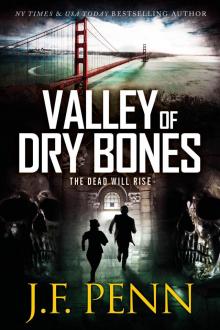 Valley of Dry Bones
Valley of Dry Bones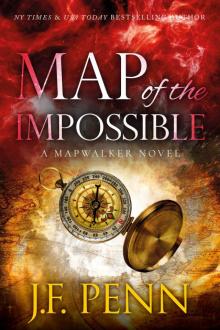 Map of the Impossible
Map of the Impossible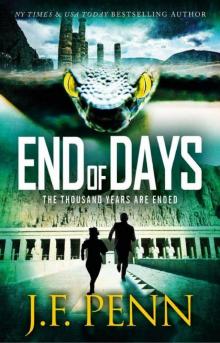 End of Days
End of Days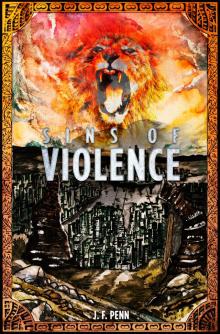 Sins of Violence
Sins of Violence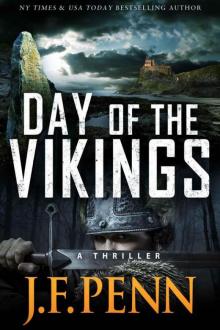 Day of the Vikings
Day of the Vikings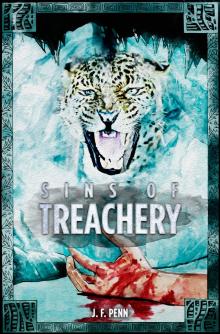 Sins of Treachery
Sins of Treachery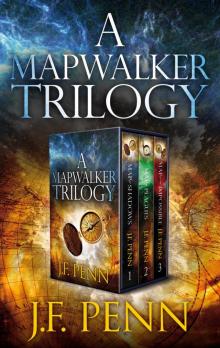 A Mapwalker Trilogy
A Mapwalker Trilogy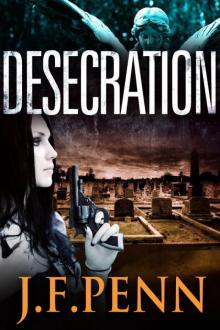 Desecration
Desecration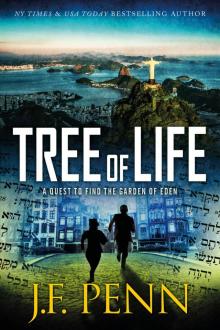 Tree of Life
Tree of Life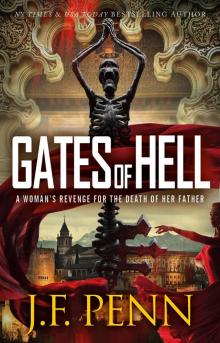 Gates of Hell
Gates of Hell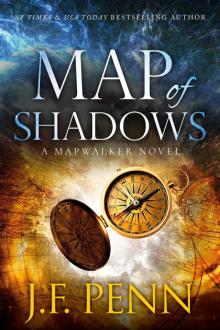 Map of Shadows
Map of Shadows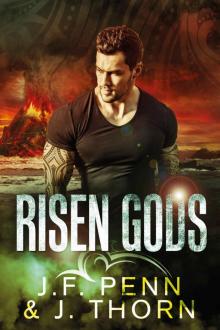 Risen Gods
Risen Gods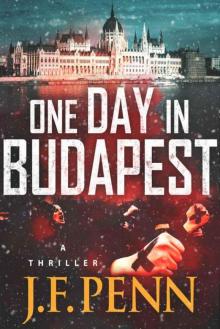 One Day In Budapest
One Day In Budapest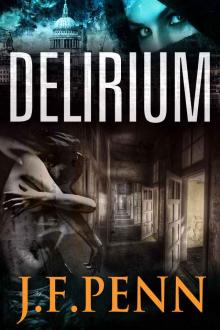 Delirium (London Psychic)
Delirium (London Psychic)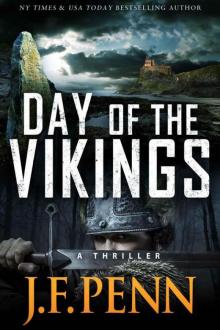 Day of the Vikings. A Thriller. (ARKANE)
Day of the Vikings. A Thriller. (ARKANE)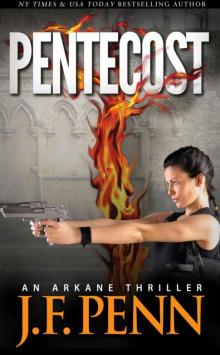 Pentecost. An ARKANE Thriller (Book 1)
Pentecost. An ARKANE Thriller (Book 1)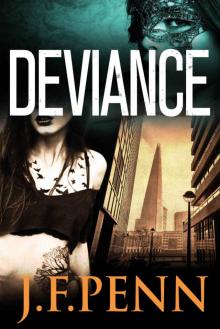 Deviance (The London Psychic Book 3)
Deviance (The London Psychic Book 3)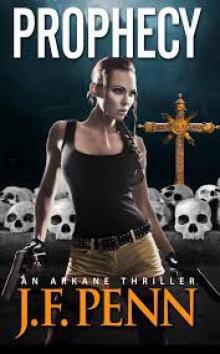 Prophecy. An ARKANE thriller. (Book 2)
Prophecy. An ARKANE thriller. (Book 2)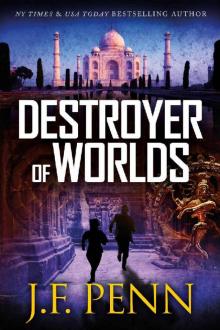 Destroyer of Worlds (ARKANE Book 8)
Destroyer of Worlds (ARKANE Book 8)